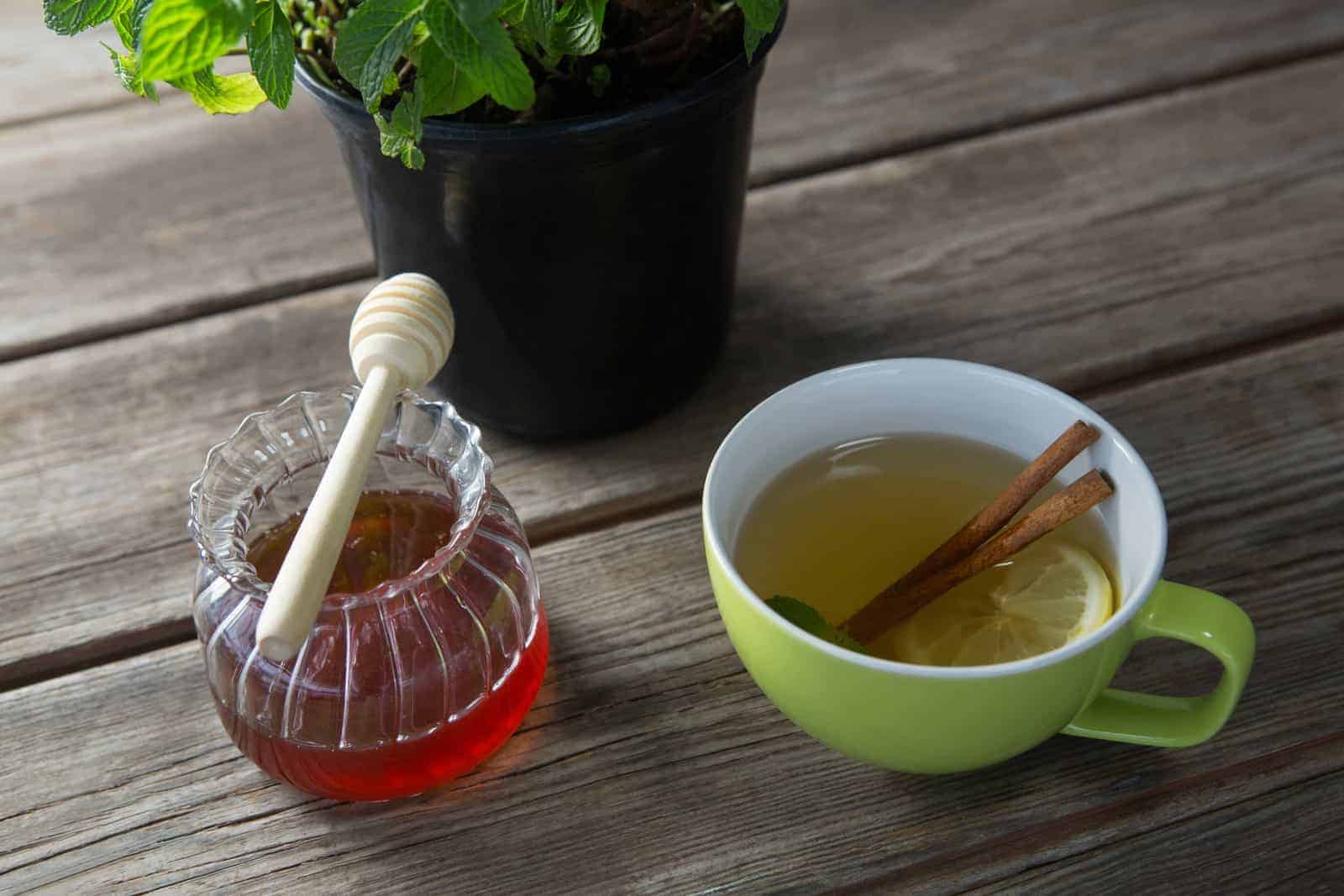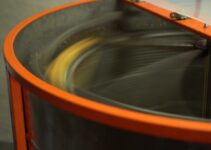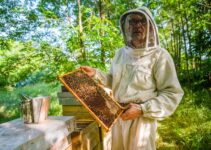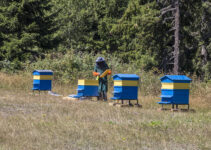Honey has been used as an ingredient in tea for as long as we’ve known about the existence of this beverage. It seems like a match made in heaven, a natural, energizing sweetener for our tea. But there’s been a lot of debate over recent years about whether adding honey to hot tea destroys the benefits? Here’s the answer:
In the honey world, you get two different types; these are raw and pasteurized. If you add raw honey to boiling hot tea, it’ll be stripped of its flavor and nutrients. However, if you add pasteurized honey to a hot tea, it’ll remain the same.
As you can see, depending on how you heat the honey, it will differ in whether or not it’ll destroy its benefits. If you’re someone wanting to know more about hot tea and honey, I suggest you read the below:
Does putting honey in hot tea destroy benefits?
Firstly, you should understand the difference between raw and pasteurized honey. Pasteurization is a process you’re probably more familiar with regarding dairy products, but most commercially available honey is subject to the same processes. Pasteurization is the process of gently heating food products which, in the case of honey, is simply designed to make the texture more palatable to consumers. It helps to keep it smooth and spreadable, despite the popular belief that pasteurization is done to cleanse the honey of harmful bacteria.
Processing honey in this way destroys many of the nutrients to begin with, so adding pasteurized honey to tea will not affect the benefits because they’ve already been destroyed. That said, if you add honey to tea immediately after it is done boiling, you are likely to strip away any benefits the honey might have beyond flavor. Honey is a very popular ingredient in cooking, too, but the high, sustained heat involved here almost certainly removes any benefits.
Honey can be added to tea while retaining all of its nutritional benefits, though. Just wait a few minutes after making your tea, once the water has cooled down considerably, and stir in your honey at this point. This way, you’ll get the wonderful, sweet taste and the myriad health benefits associate with honey.
Is adding honey to hot tea toxic?
The simple answer is no. Adding honey to hot tea is not toxic, although there is a prevailing notion that this is the case. Many have claimed that heating honey in any way—in tea, for cooking—actually turns it toxic to the extent that it is poisoning you. Again, the important distinction here is between raw and processed honey. The two will react differently when heated. In general, the injunction is against processed honey, as it has already been heated once.
This idea has its roots in Ayurvedic medicine, an alternative medicine system with roots in India. While there is much wisdom in these teachings, much of what Ayurvedic medicine teaches about honey, in particular, contradicts what we know using more conventional methods.
While we certainly would recommend trying to get raw honey if you are using it in tea, only one study suggests negative effects from heating up processed honey, and the results were observed on rats, not humans. This is not to disparage or dismiss the work done, but it does not lead to the incontrovertible conclusion that heating processed honey will be toxic. The study concluded that heating processed honey produces HMF, an organic compound formed from reducing sugars which is supposedly carcinogenic for humans. However, no link can be found between HMF and cancer for humans.
What are the benefits of hot tea and honey?
All over the world, honey in tea is used as a favorite soother for a sore throat. This is one of its most popular uses. Whatever the cause of your sore throat—whether a cold or even bronchitis—hot tea and honey can help soothe the throat, clearing mucus and providing a relieving coating to smooth the irritation in your throat.
Studies have shown that honey alone produces antioxidant, anti-inflammatory, antiproliferative, and antimetastatic effects. So, its benefits are not few and far between. As I said, honey in tea can relieve symptoms associated with cold, flu, and laryngitis. It will, more generally, improve your oral health, reduce your risk of heart disease, and can, in conjunction with other things like lemon juice and caffeine, be a huge energy booster.
After all, honey is pretty much just raw energy—sugar in another form. So, it’s not surprising that it would have a natural, energizing effect. Returning again to the question of raw vs. pasteurized honey there has been some debate over the presence of pollen in the honey. Some have suggested that unprocessed honey has a better nutritional profile because of the presence of bee pollen which is lost in pasteurization. However, it simply isn’t present in large enough quantities to have any effect on the profile.
An Australian study determined that the nutrient profile is effectively unchanged before and after processing, but raw honey is still ideal for use as a medicine.
Is honey and hot tea good for your lungs?
Given its soothing effects on the airways and throat, honey has been used as a natural remedy for all sorts of respiratory issues for centuries. It has antioxidant properties that fight the inflammation associated with conditions like asthma.
Nighttime coughing can be a considerable problem for asthmatic people. It can affect your sleeping pattern and ultimately how much energy you have daily, so it’s not a problem to be ignored. Nocturnal asthma, as it is known, can disturb your sleep through coughing, wheezing, and tightness in the chest.
Research at UCLA suggests that the sweetness of honey triggers your salivary glands to lubricate your airways with saliva, easing the cough and reducing inflammation in the bronchial tube. Adding two teaspoons of honey to a warm mug of water before bed could be all you need to avoid being kept up all night by your cough.
Conclusion
You should now be aware of the benefits and negatives of applying honey to your tea. Although misusing it may strip honey from its flavor, it certainly doesn’t cause any harm to the human body.
Now, this has been clarified, will you be adding honey to your tea?




